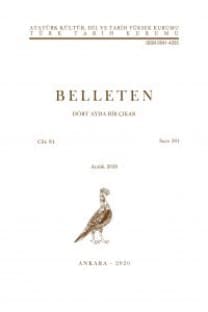XVI. yüzyılda Macaristan'da Padişah Haslarına Bağlı İki Şehir
Macaristan'daki Türk yönetimi çağının incelenmesi, daha önceki kuşakları da derinden derine uğraştırmıştır. Bununla birlikte, incelemeleri öyle iki çelişmeli görüşün ortaya çıkmasına yol açmıştır ki, etkilerini bugün bile tümüyle yitirmemiştir. Uğradığımız her yenilginin nedeninden yalnızca Habsburgları sorumlu tutan görüş; Türk yönetimindeki Macaristan'da serhat kaleleri yiğitlerinin karşılıklı hüner gösterilerinden, birbirleri ile yaptıkları kıran kırana düellolardan, birbirlerine kurdukları pusulardan, pazaryerlerine yapılan baskınlardan ve serüvenli yolculuklarından, kısacası romantik renklerle bezenmiş bir dünyadan başka bir şey görmek istememiştir. İkinci görüşün temsilcileri ise, Habsburgları savunurken durumu öylesine abartmalı, olumsuz bir biçimde canlandırmağa çalışmışlardır ki, bununla, okuyucuda, Türk süvarisinin atının ayak bastığı yerde bir daha ot bitmediği ve her şeyin yok olduğu inancını uyandırmışlardır. Bununla birlikte, biz burada, birbiriyle çelişmeli bu iki görüşün karşısında tarihsel bir gerçeği ispatlamak niyetinde değiliz. Bunun yerine, yalnızca arşiv araştırmalarımızın sonuçlarını, genişçe nesnel bir temel elde ederek Macaristan'daki Türk yönetimi çağı ile ilgili bir yargıda bulunabilmeleri için, dinleyicilerimize sunmak istiyoruz.
Anahtar Kelimeler:
XVI. Yüzyıl, Macaristan, Padişah Hasları Şehirleri, Osmanlı İmparatorluğu, Osmanlı İdaresi, Yönetim
The Anglo-Turkish Conflict Fifty Years Ago
Fifty years ago at Chanak (Dardanelles), on Turkish territory, the Turkish Army under Mustafa Kemal (Atatürk), the national hero of the Gallipoli campaign, faced its British counterpart, commanded by General Sir Charles Harington, Commander-in-Chief, Army of Occupation. What was the British Army doing on Turkish soil, and why were the armies of these two nations poised for armed conflict? The story goes back to the First World War. The Ottoman Empire, which had participated in that War as an ally of the Central Powers (Germany, Austria-Hungary and Bulgaria), was defeated by the Entente Powers (Britain, France, Italy and Greece), and was forced to sign the Armistice of Mudros on 30th October, 1918. This Amistice some of the terms of which were deliberately made ambiguous, enabled the Allies to set about possessing the war spoils in the form of Tutkish territories which they claimed to be theirs "by virtue of the secret treaties and by right of conquest". The secret war-time agreements, contracted by the belligerent Allies on clifferent dates, had envisaged the complete dissolution of the Ottoman Empire and the division o Turkish territories amongst Britain, France, Italy and Tsarist Russia. They had also revealed the hypocrisy of the Allies, who had openly declared their war aims to be, inter alia, the preservation of the integrity and independence of the Turkish homelands.
Keywords:
Anglo-Turkish Conflict, 1922, Turkish War of Independence, The Great Offensive, Armistice of Mudanya,
- ISSN: 0041-4255
- Yayın Aralığı: 3
- Başlangıç: 1937
- Yayıncı: Türk Tarih Kurumu
Sayıdaki Diğer Makaleler
Hitit Tapınağı Samuha Nerededir?
XVI. yüzyılda Macaristan'da Padişah Haslarına Bağlı İki Şehir
Some Persian Sources on the History of Turkey
Mustafa Kemal'in Amiral Brock'a Mektubu
Birinci Uluslararası Trakoloji Kongresi Hakkında Rapor
